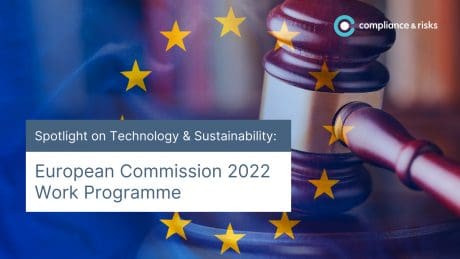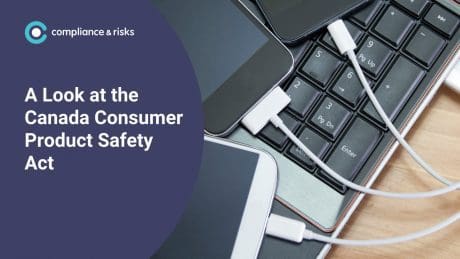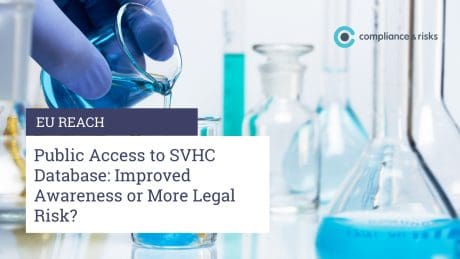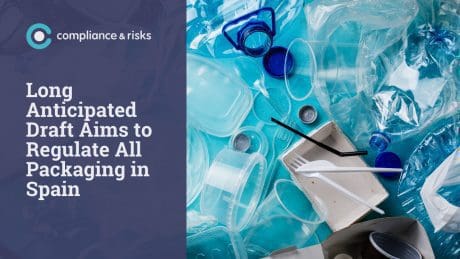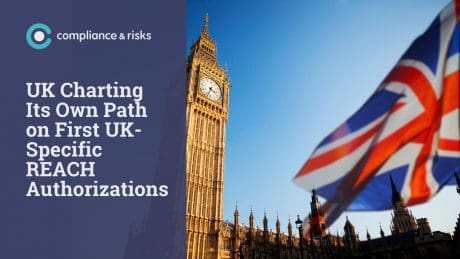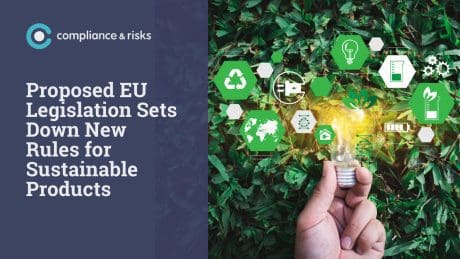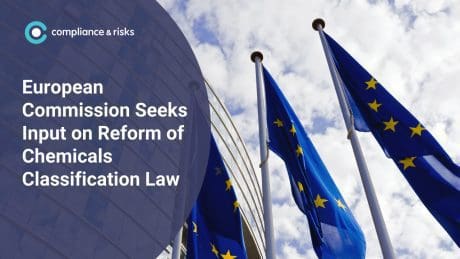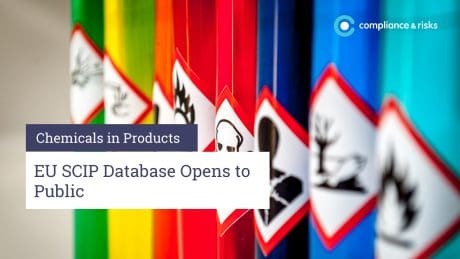
COVID-19 Regulatory Developments: Update 13
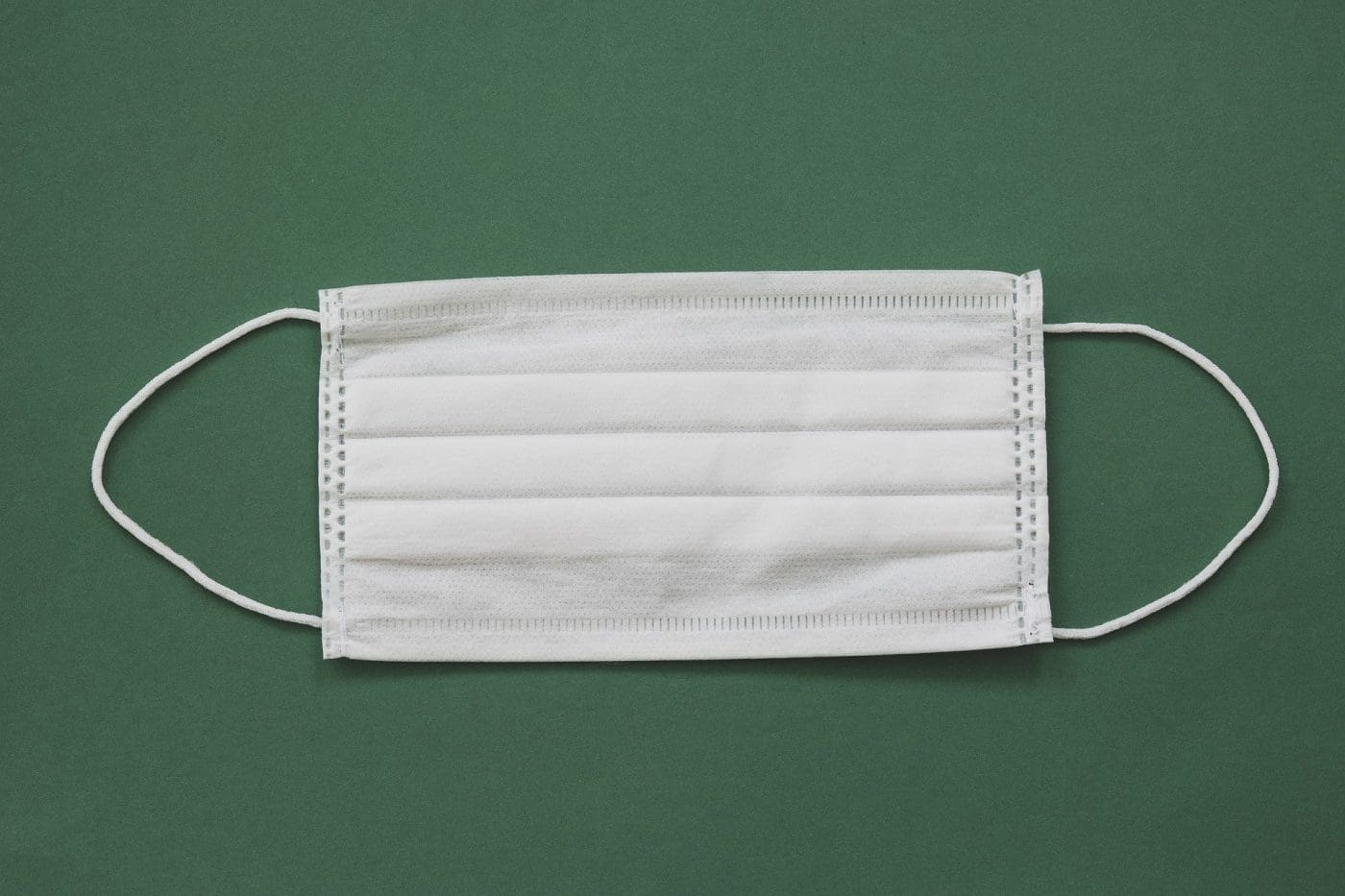
The outbreak of the COVID-19 pandemic has resulted in countries adapting their regulatory landscape to accommodate and mitigate the unprecedented disruptions to companies and individuals. Through regular updates, Compliance & Risks will closely monitor the situation and inform our clients of the latest global regulatory developments in relation to COVID-19 relevant to their topics, along with updates on items which may be of interest outside our topics.
Data Protection
The European Commission released a series of technical specifications for contact tracing apps to help monitor COVID-19 cases, including:
- Basic interoperability elements between COVID+ Keys driven solutions
- Detailed interoperability elements between COVID+ Keys driven solutions
- Interoperability guidelines for approved contact tracing mobile applications in the EU
- Mobile applications to support contact tracing in the EU’s fight against COVID-19
Most Member States have decided to launch mobile apps to complement manual contact tracing of the spread of COVID-19. The majority of national approved apps are based on a decentralized architecture, which means that the arbitrary identifiers of users that were detected for a certain duration in proximity remain on the phone itself, and will be checked by the phone against the identifiers of users reported to be infected. The technical specification for interoperability will allow these checks to be done also for users travelling from other Member States, without the need to download several national apps.
The proximity information shared between apps will be exchanged in an encrypted way that prevents the identification of an individual person, in line with the strict EU guidelines on data protection for apps – no geolocation data will be used. To support further streamlining of the system, the Commission will set up a gateway service, an interface to efficiently receive and pass on relevant information from national contact tracing apps and servers. This will minimize the amount of data exchanged and thus reduce users’ data consumption.
More information can be found here:
- Technical specifications for interoperability of contact tracing apps
- A common approach for safe and efficient mobile tracing apps across the EU
- Guidance to ensure full data protection standards of apps fighting the pandemic
- Mobile applications in support of contact tracing for COVID-19 – A guidance for EU EEA Member States
- Commission Recommendation (EU) 2020/518 of 8 April 2020 on a common Union toolbox for the use of technology and data to combat and exit from the COVID-19 crisis, in particular concerning mobile applications and the use of anonymised mobility data
- Digital technologies – actions in response to coronavirus pandemic
The Belgian Data Protection Authority (DPA) has issued guidance on temperature screening in relation to data protection. While the guidance is not specifically directed to employers, it should be taken into account by employers and employee returning to the workplace. The Authority made it clear that information on individuals’ temperature constitutes personal data relating to health. As such, temperature screening activities fall within the scope of the General Data Protection Regulation (GDPR). Measurement of individuals’ temperature by means of sophisticated devices such as digital fever scanners, thermal cameras or other automated systems that measure body temperature constitute processing operations which are, in principle, prohibited under Article 9(1) GDPR. The collection and processing of temperature measurement data may be permitted under certain exceptions within the meaning of Article 9(2). The controller, which may be the employer within the workplace, must take into account all the basic principles of data protection law (e.g. legitimacy, transparency, data minimization, data security, etc.).
The DPA does not however consider temperature readings as processing operations in the sense of GDPR provided that temperature screening or the consequences associated with it (e.g. absence from work) are not recorded. The rules and principles of the GDPR do not apply in this context. In the absence of a clear legal basis in Belgian law allowing employers to process personal health data, DPA recalls that employers are currently unable to:
- Measure a person’s temperature with the intention of recording measurement data
- Measure a person’s temperature if the consequences of such measurement are subsequently recorded
- Measure a person’s temperature using sophisticated digital devices such as fever scanners, thermal cameras or other automated systems that measure the level of body temperature
Consumer Protection
On 23 June 2020, the European Commission revealed its upcoming consumer protection policy and priorities in the coming years taking into account the impact of COVID-19 on consumers. The Commission’s Roadmap lays the groundwork for a new Consumer Protection Agenda and refers to a number of legislative proposals considered for adoption in 2021.
EH&S: Occupational Health Safety
The UK Government issued a number of Occupational Health & Safety Guidance documents in relation to COVID-19. These guidance documents are intended to help employers and employees returning to the workplace understand how to work safely post COVID-19:
- Guidance for people who work in or run factories, plants and warehouses
- Guidance for people who work in or run outdoor working environments
- Guidance for people who work in or run offices, contact centers and similar indoor environments
The UK’s Health and Safety Executive (HSE) issued several COVID-19 updates under the Control of Major Accident Hazards Regulations 2015 (COMAH). All updates are released on the HSE’s website. Of particular importance, the guidance on COMAH notification requirements specifies that businesses that normally fall outside the scope of COMAH may be required to submit a notification to the COMAH competent authority. Notification will be required if businesses change their activities in response to COVID-19 and if such a change involves increasing their dangerous substance inventories or storing new substances above the specified threshold for applying COMAH. The notification must be done in a ‘reasonable time’, that is, between 3 to 6 months before making changes which prompt the application of COMAH. For further information, please consult the HSE webpage dedicated to the Control of Major Accident Hazards.
More guidance has been developed by the HSE to help employers manage and assess the risks associated with re-starting or running businesses during the outbreak. The HSE states that it is the employer’s responsibility to protect their employees and to carry out a risk assessment in which he/she shall:
- Identify what work activity or situations might cause transmission of the virus
- Identify and protect the persons at higher risk
- Decide how likely it is that someone could be exposed
- Act to remove the activity or situation, or if this isn’t possible, control the risk
For this purpose, the HSE has made available templates and examples of risk assessments performed by other businesses. Additionally, the HSE published useful resources on practical measures to implement including social distancing, hygiene and face mask policies, to prevent the transmission of the virus in the workplace. Detailed guidance for larger and higher risks may be found here.
Note that further HSE guidance is also in place for onshore hazard establishments, and more specifically national critical infrastructures, that are subject to COMAH. It covers aspects associated with the management of increased risks resulting from reduced staffing and staff fatigue during COVID-19.
On 18 June 2020, the Scottish Government updated its Guidance on Returning to Work Safely. The position taken by national authorities is that employees should be encouraged to work from home. Details on which sectors are able to restart, or can prepare to return to work and how to do this safely are provided. The Government expects employers to follow the principles set out in the Fair Work Convention’s Framework when making decisions on how to manage the workplace during the crisis.
Earlier in May 2020, the Government updated its guidance on “Test and Protect – Advice for Employers”. The Government stresses that employers should comply with public health guidance and indicates what steps to follow if an employee is feeling unwell or develops COVID-19 symptoms at work. Additional official guidance on businesses and physical distancing can be found here.
In the United States, the Occupational Safety and Health Administration (OSHA) has developed “Guidance on Returning to Work” for non-essential businesses. The guidance, issued on 17 June 2020, supplements former Guidance on Preparing Workplaces for COVID-19 and the White House’s ‘Guidelines for Opening up America Again’. It covers critical aspects to prevent contamination within the workplace including strategies for maintaining hygiene and disinfection, social distancing, isolation of contaminated employees, workplace functioning and employee training.
In Brazil, the Ministry of Economy issued a Portaria laying down the measures to be applied in order to prevent and control the transmission of COVID-19 in the workplace. Businesses should develop internal guidelines and protocols and implement the measures set out in Annex I. The Portaria was enacted on 18 June and will apply until the end of the state of health emergency in Brazil.
After introducing a Bill establishing a presumption of occupational disease for essential workers in connection with COVID-19, the Government of Ontario has extended the Infectious Disease Emergency Leave to workers “whose hours of work are temporarily reduced or eliminated by the employer for reasons related to the designated infectious disease during COVID-19” (Ontario Reg. 228/20). More information can be found here.
eWaste / WEEE
In Ontario, the Resource Productivity and Recovery Authority (RPRA) has deferred a number of reporting and fee payment deadlines as a result of COVID-19. With respect to batteries, batteries service providers who were not able to register with the Authority before 31 March 2020 should contact the Compliance and Registry Team of RPRA to discuss an alternative registration date. Likewise, RPRA announced on its official website that batteries producers will be notified with information on the opening of the registration process. The registration deadline for batteries producers is normally 30 November 2020.
Ente Nacional de Comunicaciones (ENACOM), the National Entity for Communications in Argentina, has once again extended the validity of permits, authorizations and registrations for a period of sixty days starting from 1 July 2020. The extension applies only to those permits, authorizations and registrations that expire between 16 March and 30 June 2020. This measure follows from a previous Resolution issued on 2 April 2020 in which ENACOM already introduced temporary measures to extend the validity of permits, authorizations, registrations and licenses until June 2020.
EH&S: Environment
A draft Ordinance has been introduced by the Swiss Federal Council to relax certain environmental provisions with respect to COVID-19. The draft Ordinance establishes an exemption from the Volatile Organic Compound (VOC) Incentive Tax for disinfectants and extends, until the end of August 2020, the deadline to claim tax back on the VOC Incentive Tax. It also proposes to suspend the prohibition on the use of thermal paper containing Bisphenol A (CAS No. 80-05-7) or Bisphenol S (CAS No. 80-09-1) until 15 December 2020.
Ontario‘s Ministry of the Environment, Conservation and Parks has repealed O. Regulation 115/20 so that the requirements to post proposals for acts, policies, regulations and instruments on the Environmental Registry pursuant to the Environmental Bill of Rights, 1993 are now restored.
Carbon Footprinting
In Mexico, the Secretariat of the Environment and Natural Resources has introduced a proposed Agreement to extend until 30 September 2020 the deadline for submitting annual operating certificates and the National Emissions Registry corresponding to 2019. The draft also proposes to extend until 31 October the statutory deadline for the submission of the verification opinion for the year 2019.
Medical Supplies and Personal Protective Equipment
Health Canada issued an Interim Order requiring holders of authorizations to import or sell a medical device for use with respect to COVID-19 to report any incident within 10 days after becoming aware of an adverse event associated with their devices in Canada.
On 22 June 2020, the Indian Government, via Notification No. 14 /2015-2020, imposed a ban on the export of certain Personal Protection Equipment (PPE) irrespective of whether they are exported as part of kits or individual items:
- Medical coveralls of all classes/categories
- Medical Goggles
- All masks other than non-medical/non-surgical masks (Cotton, Silk, Wool, Polyester, Nylon, Rayon, Viscose – Knitted, Woven or Blended)
- Nitrile/NBR Gloves
- Face Shield
In the United States, the Occupational Safety and Health Administration (OSHA) issued Frequently Asked Questions and Answers related to face masks in the workplace to help employers understand their role in preventing the spread of COVID-19. While employers should generally encourage workers to wear face masks at work, OSHA recalls that employers “have the discretion to determine whether to allow employees to wear cloth face coverings in the workplace based on the specific circumstances present at the work site”.
The Federal Drug Administration (FDA) had the opportunity to clarify adverse event reporting requirements for medical devices authorized under Emergency Use Authorizations (EUAs). Manufacturers of devices covered by EUAs designations must comply with reporting requirements laid down in 21 CFR Part 803. The time frame to submit a Medical Device Report to the FDA is 30 calendar days after becoming aware of an adverse event and 5 calendar days where an adverse event requires remedial actions to prevent a risk of harm to the public health. Since the onset of COVID-19, the FDA has issued EUAs covering respirators, face shields, masks, gowns, gloves and ventilators:
- NIOSH-Approved Air Purifying Respirators for Use in Health Care Settings
- Imported non-NIOSH-approved disposable Filtering Facepiece Respirators
- Non-NIOSH-approved Disposable Filtering Facepiece Respirators Manufactured in China
- Face shields for use by Health Care Personnel (HCP)
- Face masks for use by the general public including health care personnel (HCP)
- Ventilators and ventilator accessories
- Gown and other apparels
